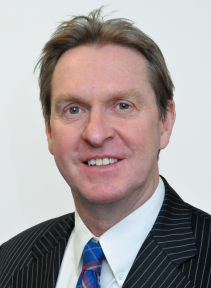 New technology companies need the oxygen of someone else’s money to survive and grow, that’s how capitalism works. Here in California, multi-million dollar investments and eye-watering billion dollar company valuations are everyday news. The ultimate goal of new technology companies is to gain “unicorn” status as rapidly as possible i.e. be valued at more than $1 billion. In reality, the process of achieving such a lofty status by wooing investors invariably involves hyping the product as soon and as much as possible. In the rarified atmosphere of Silicon Valley venture capital, where money follows money, this means offering to “change the world.”
New technology companies need the oxygen of someone else’s money to survive and grow, that’s how capitalism works. Here in California, multi-million dollar investments and eye-watering billion dollar company valuations are everyday news. The ultimate goal of new technology companies is to gain “unicorn” status as rapidly as possible i.e. be valued at more than $1 billion. In reality, the process of achieving such a lofty status by wooing investors invariably involves hyping the product as soon and as much as possible. In the rarified atmosphere of Silicon Valley venture capital, where money follows money, this means offering to “change the world.”
In tech speak all aspects of human health are fair game for “disruption.” As an example, one high profile entrepreneur has decided that buying, cooking, and eating food is just too much hassle (and presumably takes too much time away from seeking world domination through the internet), and therefore created Soylent, a company selling a liquid, 400 calorie total meal replacement or, as they describe it, a “nutritionally complete staple food designed to provide maximum nutrition with minimal effort.”
At the beginning of the year, this company, named after a rather bleak 1970s sci-fi movie, received $20 million in funding despite the absence of any comparative trials assessing the impact of long term use of the product, which one reporter has described as “the most joyless new technology to hit the world.” Shortly after the investment, the company was valued at $150 million and apparently the product is flying off the shelves.
The question is to whom do the funders listen to when considering an investment in new health technology? Probably not always the right people it seems. A good example of this is the dramatic and recent fall from grace of one of these unicorns.
One high profile startup offering low cost blood testing using minuscule amounts of blood was recently valued at $9 billion and had a founder that was being hailed as the next Steve Jobs, but notably the board had a paucity of practicing physicians. Unfortunately, the Wall Street Journal (WSJ) has just published several criticisms of the company. Apparently, it has not actually been using its own technology for running blood tests, and there were also alleged problems with their tests’ accuracy. Before these revelations, the company had been somewhat notorious for its secrecy and noteworthy for not believing in the traditional publish or perish approach to validation and adoption of a new technology.
Hopefully this recent controversy should highlight to Silicon Valley investors that a gung-ho “move fast and break things” approach to innovation may work for taxi rides and choosing a vacation rental, but is probably not suitable for healthcare—as one ex-patient put it “trial and error on people, that’s not OK.” Investors in health technology should understand that startups will need to have their data scrutinized by those in the know as they grow and develop—in other words, they’ll need to prove that what they are creating actually works in reality not just in concept. Perhaps this is where clinicians and sensible patients can provide help to young West Coast entrepreneurs? Unicorns were once the stuff of myth, but as far as health technology is concerned, perhaps they should continue to remain a fantasy until they prove their worth in reality.
David Kerr has worn many hats, sometimes at the same time—diabetologist; editor of Diabetes Digest; researcher; and founder of VoyageMD.com, a free service for travellers with diabetes, and Excarbs.com, which focuses on exercise and insulin. He is now director of research and innovation at the William Sansum Diabetes Center in Santa Barbara, California. You can follow him on Twitter (@GoDiabetesMD) and LinkedIn.
Competing interests: The author has no relevant competing interests to declare.
